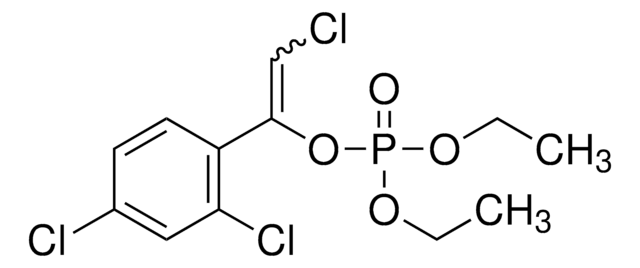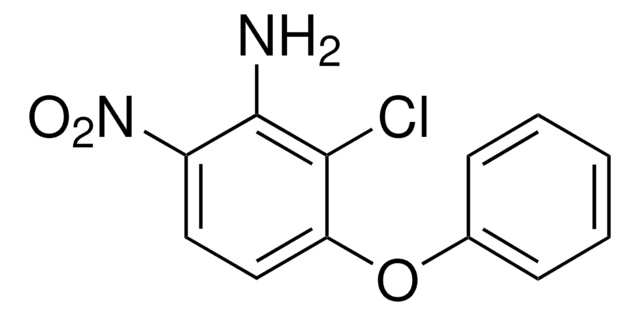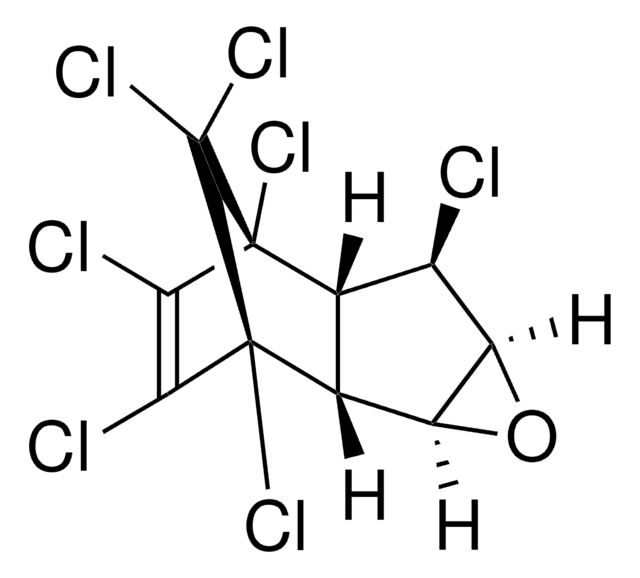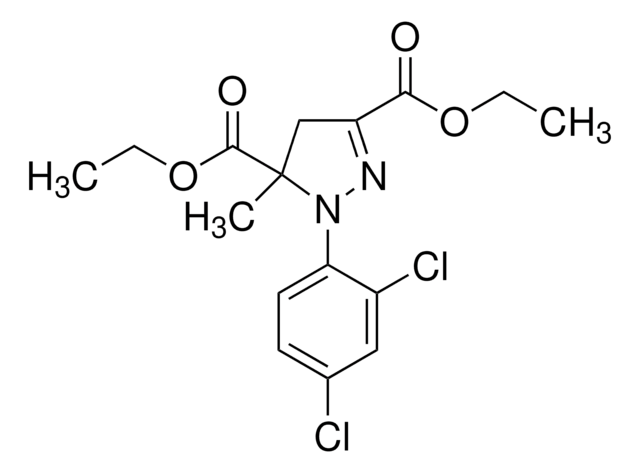45333
Azinphos-methyl
PESTANAL®, analytical standard
Synonyme(s) :
Guthion®
About This Item
Produits recommandés
Qualité
analytical standard
Niveau de qualité
Gamme de produits
PESTANAL®
Durée de conservation
limited shelf life, expiry date on the label
Technique(s)
HPLC: suitable
gas chromatography (GC): suitable
Application(s)
agriculture
environmental
Format
neat
Température de stockage
2-8°C
Chaîne SMILES
COP(=S)(OC)SCN1N=Nc2ccccc2C1=O
InChI
1S/C10H12N3O3PS2/c1-15-17(18,16-2)19-7-13-10(14)8-5-3-4-6-9(8)11-12-13/h3-6H,7H2,1-2H3
Clé InChI
CJJOSEISRRTUQB-UHFFFAOYSA-N
Vous recherchez des produits similaires ? Visite Guide de comparaison des produits
Catégories apparentées
Application
Informations légales
Mention d'avertissement
Danger
Mentions de danger
Conseils de prudence
Classification des risques
Acute Tox. 1 Inhalation - Acute Tox. 2 Oral - Acute Tox. 3 Dermal - Aquatic Acute 1 - Aquatic Chronic 1 - Skin Sens. 1
Code de la classe de stockage
6.1A - Combustible, acute toxic Cat. 1 and 2 / very toxic hazardous materials
Classe de danger pour l'eau (WGK)
WGK 3
Point d'éclair (°F)
Not applicable
Point d'éclair (°C)
Not applicable
Équipement de protection individuelle
dust mask type N95 (US), Eyeshields, Faceshields, Gloves, type P2 (EN 143) respirator cartridges
Faites votre choix parmi les versions les plus récentes :
Déjà en possession de ce produit ?
Retrouvez la documentation relative aux produits que vous avez récemment achetés dans la Bibliothèque de documents.
Les clients ont également consulté
Protocoles
Test your food for fipronil contamination using our analytical standards, certified reference materials, solvents, and columns for analysis.
Test your food for fipronil contamination using our analytical standards, certified reference materials, solvents, and columns for analysis.
Test your food for fipronil contamination using our analytical standards, certified reference materials, solvents, and columns for analysis.
Test your food for fipronil contamination using our analytical standards, certified reference materials, solvents, and columns for analysis.
Notre équipe de scientifiques dispose d'une expérience dans tous les secteurs de la recherche, notamment en sciences de la vie, science des matériaux, synthèse chimique, chromatographie, analyse et dans de nombreux autres domaines..
Contacter notre Service technique
















